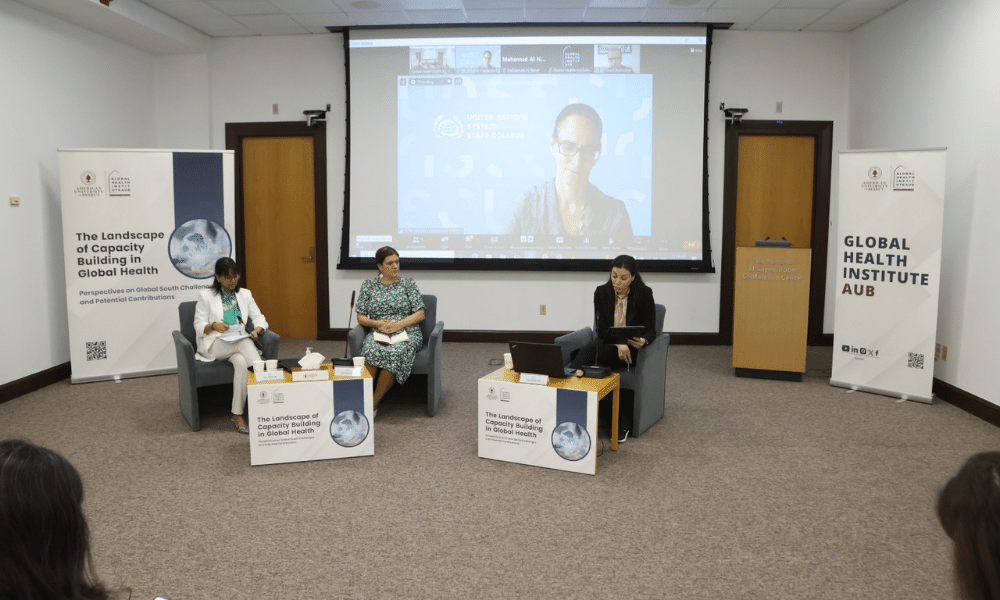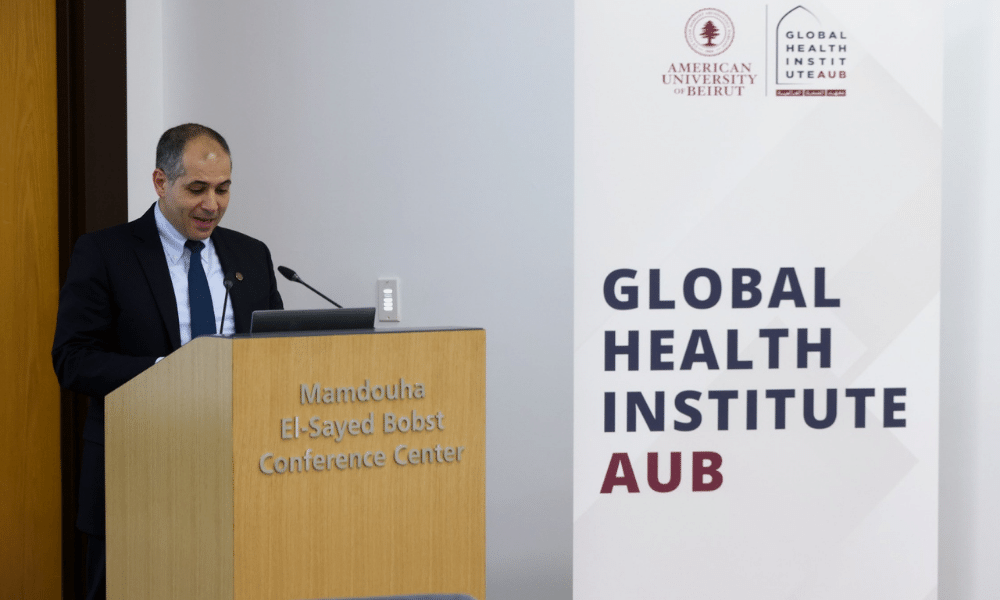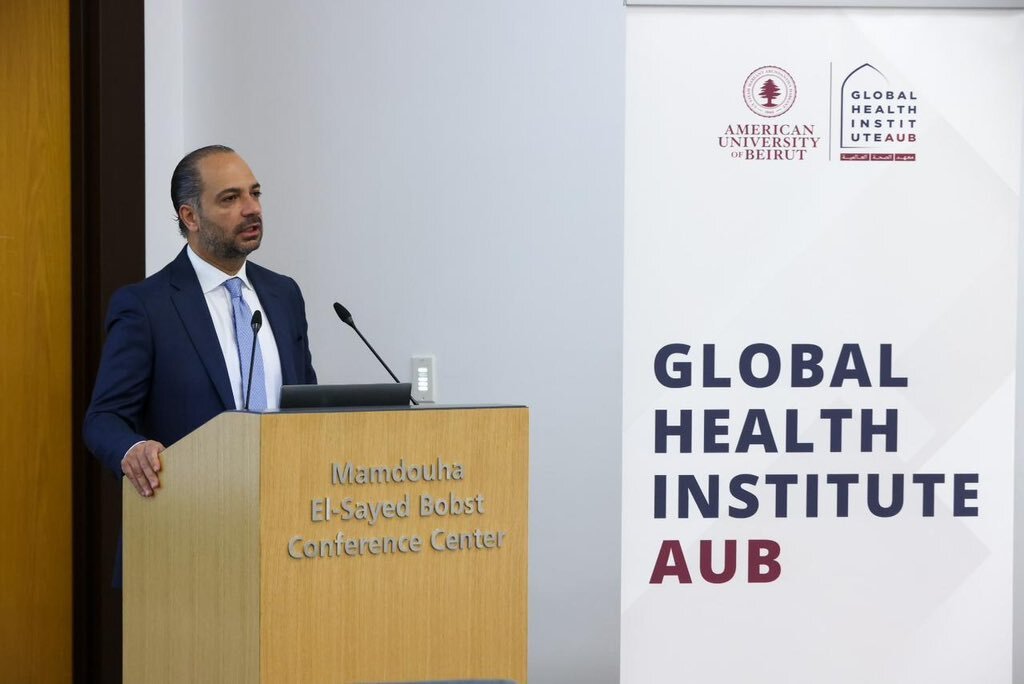GHI Explores with Key Experts Global Health Capacity Building from a Southern Perspective
The Academy Division, at the Global Health Institute at the American University of Beirut (AUB) hosted an event titled “The Landscape of Capacity Building in Global Health: Perspectives on Global South Challenges and Potential Contribution.” The event took place on April 3rd, 2024, at AUB campus, bringing together esteemed speakers and participants from various sectors of the humanitarian and global health community to discuss challenges and opportunities for global health capacity building in the global south.
Opening remarks were initiated by Dr. Zaher Dawy, Provost of the American University of Beirut, who welcomed attendees with an insightful note emphasizing the importance of contextualized capacity building opportunities within and around communities they aim to serve. He reiterated AUB’s commitment to empowering the Global South in addressing pressing health challenges. This was followed by Dr. Shadi Saleh, Founding Director of the Global Health Institute, who emphasized the institute’s mission to amplify the voice of the Global South and foster dialogue that resonates with the region’s needs. He highlighted GHI’s efforts in enhancing contextualized learning and capacity building opportunities in global health. Finally, Dr. Qamar Mahmoud, Senior Program Specialist at the International Development Research Center (IDRC), underscored the significance of health system strengthening in capacity building initiatives, particularly in supporting the health workforce.
Directly after, the event showcased GHI Academy Division’s experience in designing, implementing, and evaluating innovative global health capacity building initiatives through presentations. Nisrine El Hadi, GHI Academy Manager, outlined the institute’s commitment to empowering the Global South through various online and self-paced capacity building offerings on the Global Health Learning and Development platform GHLAD along with a brief of the Academy’s innovative portfolio. Hady Naal, GHI Programs Manager, presented findings from the evaluation of the Capacity Building programs (eCAP), demonstrating the positive impact of GHI’s initiatives on increasing access to education, enhancing knowledge and skills, and empowering learners to develop professionally.
Then, a moderated panel discussion by Dr. Tania Haddad an Associate Professor of Public Administration and Nonprofit Management at AUB, featured key actors from prominent organizations such as the World Health Organization (WHO), United Nations High Commissioner for Refugees (UNHCR), The Eastern Mediterranean Public Health Network (EMPHNET), and AUB, among others. Panelists shared insights and lessons learned in capacity building efforts in the MENA region.
For instance, Dr. Mohannad Al Nsour, Executive Director at EMPHNET, highlighted the urgent need to invest in the health workforce to address the critical gap caused by brain drain in the region. Dr. Zinia Sultana, Senior Public Health Officer at UNHCR Lebanon, discussed the challenges faced in capacity building efforts during conflicts and fragile situations, emphasizing the importance of addressing vulnerabilities among displaced populations. Dr. Tania Bosqui, Clinical Psychologist and Assistant Professor at AUB, stressed the significance of building strong relationships and participatory approaches for sustainability in capacity building initiatives. Dr. Simona Costanzo, Chief of Academic Partnerships at UNSSC, emphasized that capacity building is not just about acquiring knowledge but also about acting differently and strengthening networks and relationships. Finally, Dr. Arash Rashidian, Director of Science, Information, and Dissemination at WHO, highlighted the collaborative nature of WHO’s capacity building efforts, emphasizing the importance of bringing stakeholders together to work closely and implement strategies effectively.





